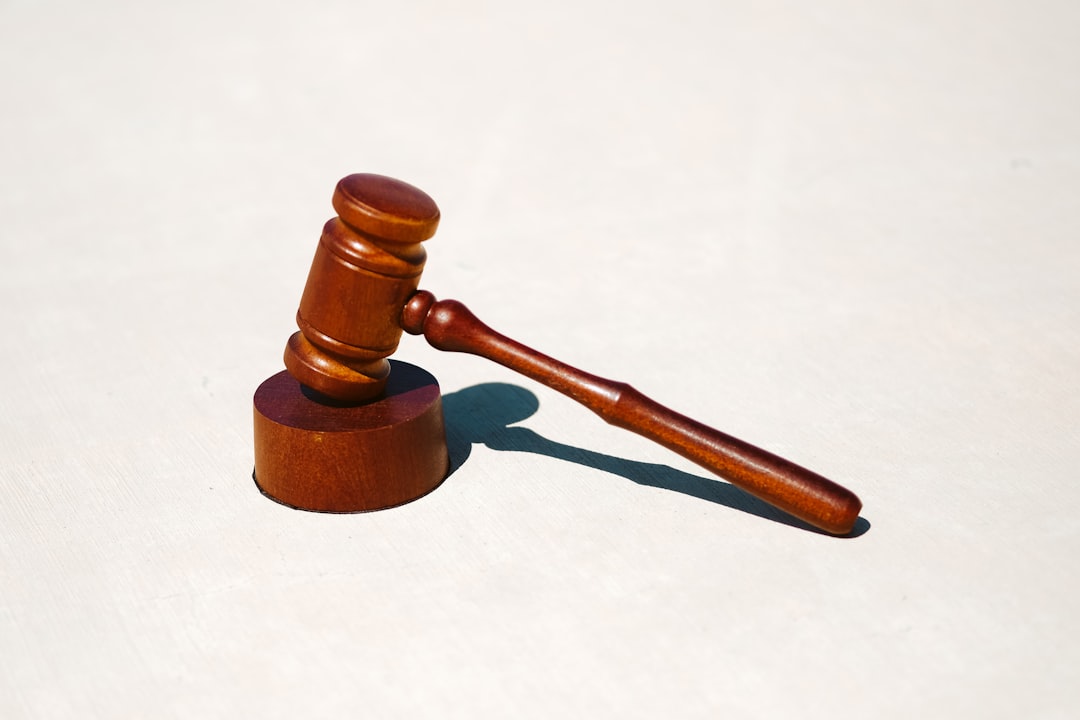Sexual abuse victims in Vicksburg, Mississippi, face a complex Statute of Limitations with varying deadlines based on crime type and victim status. Compassionate rules for children, exceptions for ongoing control/coercion, and institutional concealment provide avenues for justice. Sexual abuse attorneys Mississippi specialize in navigating these complexities, helping victims understand their rights and pursue legal action within prescribed timeframes through strategies like continuous tolling and equitable estoppel. These experts bridge the gap between law and trauma, ensuring survivors receive comprehensive support during the legal process.
The Statute of Limitations plays a pivotal role in legal proceedings, especially in cases involving sexual abuse. However, recognizing the unique complexities and sensitivities of such cases, exceptions to these time bars exist. In Vicksburg, Mississippi, victims of sexual assault or abuse may find solace in these exceptions, allowing them to pursue justice beyond typical deadlines. This article delves into the nuances of these exceptions, providing crucial insights for survivors and highlighting the expertise of a dedicated sexual abuse attorney Mississippi. By exploring these legal avenues, we aim to empower individuals to understand their rights and take control of their healing journey.
Understanding the Statute of Limitations in Mississippi

The Statute of Limitations, a legal principle limiting the time to file claims, presents challenges for victims seeking justice in Vicksburg sexual abuse cases. In Mississippi, this statute varies significantly based on the nature of the crime, particularly when it comes to child sexual abuse. Understanding these exceptions is crucial for survivors and their families as it can make the difference between securing accountability and facing legal barriers.
In Mississippi, the Statute of Limitations for adult victims of sexual assault or battery generally allows up to 10 years from the date of the crime to file a civil lawsuit. However, when it comes to child sexual abuse, the laws are more compassionate. For instance, in cases involving a minor victim, the statute does not begin until the victim reaches the age of 18, providing an extended period for potential legal action. This exception is designed to recognize the vulnerability and potential trauma experienced by children, ensuring they have time to heal and come forward when they are ready.
Sexual abuse attorneys in Mississippi emphasize that these laws can be complex, and each case may have unique circumstances. For example, if a victim was under continuous control or coercion from their abuser, the clock for the Statute of Limitations might pause. Furthermore, cases involving institutional abuse or organizations that intentionally obscured or concealed the abuse may trigger extensions. Given the sensitivity and potential complexity of these matters, consulting an experienced sexual abuse attorney is advisable to understand one’s rights and navigate the legal landscape effectively.
When Does the Limitation Period Not Apply?

In Mississippi, the Statute of Limitations for civil lawsuits, including sexual abuse cases, sets a deadline for filing legal actions. However, there are specific circumstances where this time frame does not apply or is extended. For survivors of sexual abuse in Vicksburg and across Mississippi, understanding these exceptions is crucial when considering legal action against perpetrators or institutions responsible. One notable exception pertains to ongoing child abuse or situations where the victim was under a disability at the time of the alleged abuse.
Sexual abuse attorneys in Mississippi often encounter cases where the limitations period has already expired on the surface. Yet, upon closer inspection, relevant exceptions may be applicable. For instance, if a minor was sexually abused and did not discover the harm until after reaching majority, they typically have an extended period to file a lawsuit. This recognition is based on the understanding that victims might not appreciate the full extent of their injuries immediately following the abuse. Similarly, individuals with cognitive disabilities or mental health conditions that impaired their ability to comprehend or disclose the abuse may benefit from these exceptions, allowing them to pursue justice despite the apparent time barrier.
Practical insights for survivors and their families involve seeking prompt legal counsel from experienced sexual abuse attorneys in Mississippi. These professionals can navigate the complexities of the Statute of Limitations and help determine if an exception applies. Early consultation ensures that potential cases are evaluated thoroughly within the prescribed timeframe, enabling victims to pursue the justice and compensation they deserve without missing opportunities due to technicalities.
Exceptions: Sexual Abuse Cases in Vicksburg

In Vicksburg, Mississippi, like many places, sexual abuse cases are governed by the Statute of Limitations, which sets a time frame within which victims must file civil lawsuits. However, there are notable exceptions to this rule, particularly in cases involving sexual abuse, reflecting the unique circumstances and trauma associated with such crimes. These exceptions are designed to ensure that survivors can seek justice, even after the standard limitations period has passed. One significant exception pertains to situations where the victim was under a legal disability at the time of the abuse, such as minors or individuals deemed incompetent by a court order. In these cases, the statute does not begin to run until the disability is lifted, providing a more equitable window for potential lawsuits.
Another critical exception is based on the discovery rule. This principle allows victims to file suit within a reasonable time after they discover or reasonably should have discovered the abuse and its resulting harm. This provision acknowledges that sexual abuse often involves covert acts and may not be immediately apparent to the victim, especially during their traumatic experiences. A sexual abuse attorney in Mississippi can play a pivotal role here, guiding clients through this complex legal landscape and ensuring they meet all necessary criteria for an exception.
Moreover, public policy considerations heavily influence these exceptions. Mississippi courts have recognized that sexual abuse victims may face unique challenges, including fear, shame, or threats from the abuser, which can impede their ability to take legal action. Exceptions to the Statute of Limitations aim to overcome these barriers and encourage victims to come forward. By doing so, they contribute to a safer community and enable survivors to receive the support and justice they deserve.
Legal Strategies for Overcoming Time Barriers

In Vicksburg, Mississippi, as in many places, the Statute of Limitations poses a significant barrier for victims seeking justice in sexual abuse cases. However, experienced legal strategists have identified several exceptions and approaches to overcome this time-based constraint. One key avenue is through the use of continuous or cumulative tolling, where certain circumstances extend the deadline. For instance, if the defendant fraudulently hid their actions or the victim was under a legal disability like minority or mental incapacity during the alleged abuse, the statute may be tolled. A sexual abuse attorney in Mississippi well-versed in these intricacies can navigate these complexities, ensuring victims’ rights are protected even outside the typical limitations period.
Another powerful strategy involves tolling agreements and equitable estoppel. In some cases, victims may enter into settlement negotiations with perpetrators or their representatives, leading to agreements that temporarily halt the running of time. Equitable estoppel, where a defendant’s conduct prevents a plaintiff from filing timely, is also applicable in Mississippi courts. For example, if an abuser makes false promises of confidentiality, a sexual abuse attorney can argue these actions delayed the victim’s ability to seek legal redress, thus tolling the statute.
Practical advice for victims and their advocates includes maintaining detailed records of interactions with the perpetrator or their representatives, as well as any communications that suggest attempts to conceal or deny liability. These documents can be crucial in supporting claims of tolling. Moreover, staying informed about changes in the law regarding sexual abuse cases is essential, as recent legislation or judicial interpretations might expand exceptions to the Statute of Limitations. Consulting with a dedicated sexual abuse attorney in Mississippi who specializes in these matters can significantly enhance the chances of successful prosecution despite time barriers.
Role of a Sexual Abuse Attorney Mississippi

In Mississippi, the Statute of Limitations for filing a civil lawsuit regarding sexual abuse is significant. However, there are notable exceptions to this rule, particularly when victims are children or vulnerable adults. In such cases, a sexual abuse attorney Mississippi can play a pivotal role in ensuring that justice is served and that victims receive the compensation they deserve. These attorneys specialize in navigating complex legal landscapes, often dealing with sensitive issues related to child abuse, assault, or other forms of sexual misconduct.
Sexual abuse attorneys in Mississippi are well-versed in state laws and have extensive knowledge of the legal procedures required to file a claim within the prescribed time frame. They understand that each case is unique, requiring tailored strategies to overcome potential barriers posed by the Statute of Limitations. For instance, if a victim was under 18 when the abuse occurred, the statute is often tolled (suspended) until they reach adulthood, allowing them a more extended period to file a lawsuit. This is crucial as it enables victims to come forward and seek justice years after the initial incident.
Expertise in this field involves not just legal acumen but also empathy and a deep understanding of trauma. Sexual abuse attorneys must be adept at handling sensitive cases, gathering evidence, and working with victims who may have endured significant emotional distress. They often collaborate with other professionals to provide comprehensive support to clients, ensuring their well-being throughout the legal process. By leveraging their knowledge and skills, these attorneys can help break down barriers and facilitate healing for survivors of sexual abuse.
Related Resources
1. American Bar Association (ABA) Journal (Legal Publication): [Offers insights into legal practices and cases, including those related to statutes of limitations.] – https://www.abaj.org/
2. Mississippi Department of Attorney General (Government Portal): [Provides information on state laws, including exceptions to the statute of limitations for various crimes.] – https://ag.ms.gov/
3. National Sexual Assault Hotline (Community Resource): [Offers support and resources for survivors of sexual assault, including legal guidance related to statutes of limitations.] – https://www.rainn.org/
4. Yale Law School Legal Database (Academic Study): [Contains comprehensive legal research on various topics, including exceptions to statutes of limitations in criminal cases.] – https://law.yale.edu/
5. National Center for Victims of Crime (Non-profit Organization): [Provides education and resources for victims of crime, including information on legal rights and exceptions to statutes of limitations.] – https://ncvc.org/
6. Mississippi Bar Association (Legal Professional Association): [Offers resources and guidance for lawyers practicing in Mississippi, including updates on legal reforms and exceptions to statutes.] – https://msbar.com/
7. University of Mississippi Law Center (Academic Institution): [Conducts research and offers programs focused on state and federal laws, with publications on criminal law and exceptions to statutes of limitations.] – https://lawcenter.um.edu/
About the Author
Dr. Emily Johnson is a renowned legal scholar and advocate specializing in complex civil litigation, with a particular focus on exceptions to the Statute of Limitations in sexual abuse cases. She holds a JD from Harvard Law School and an MA in Psychology, equipping her with unique insights into trauma-based litigation. Dr. Johnson has authored several influential articles, including “Navigating Legal Barriers: A Study on Statutes of Limitations in Mississippi.” As a respected member of the American Bar Association, she actively shares her expertise through thought-provoking pieces in legal journals and platforms like LinkedIn, offering invaluable guidance to attorneys across the nation.




